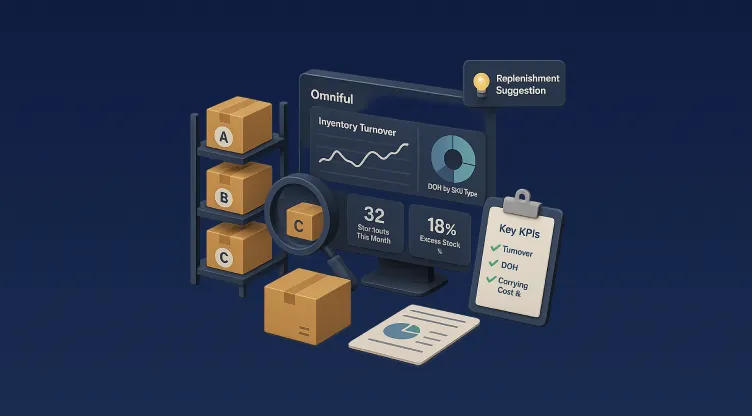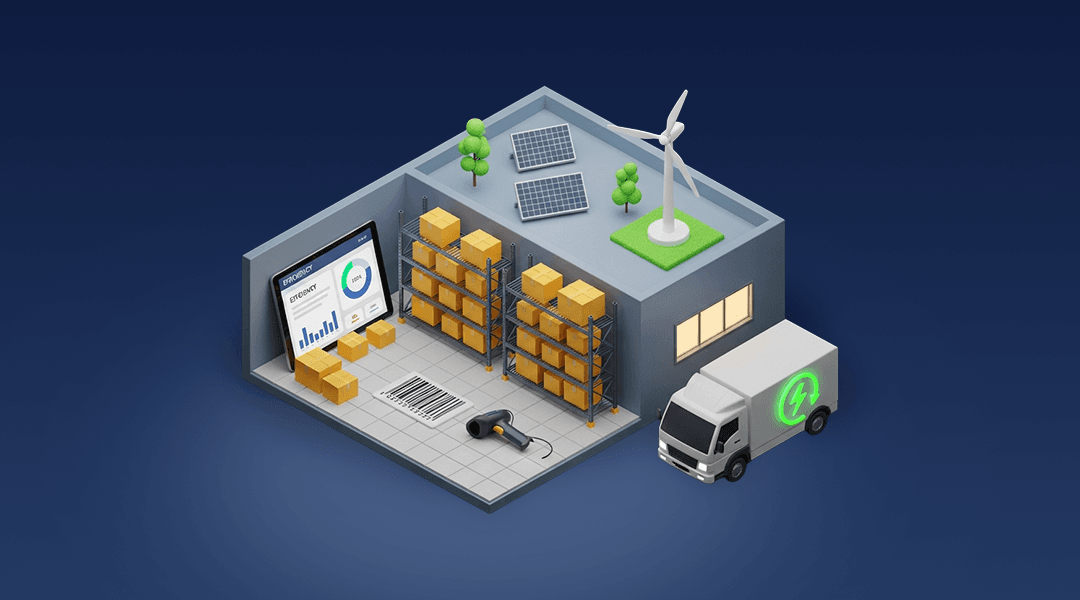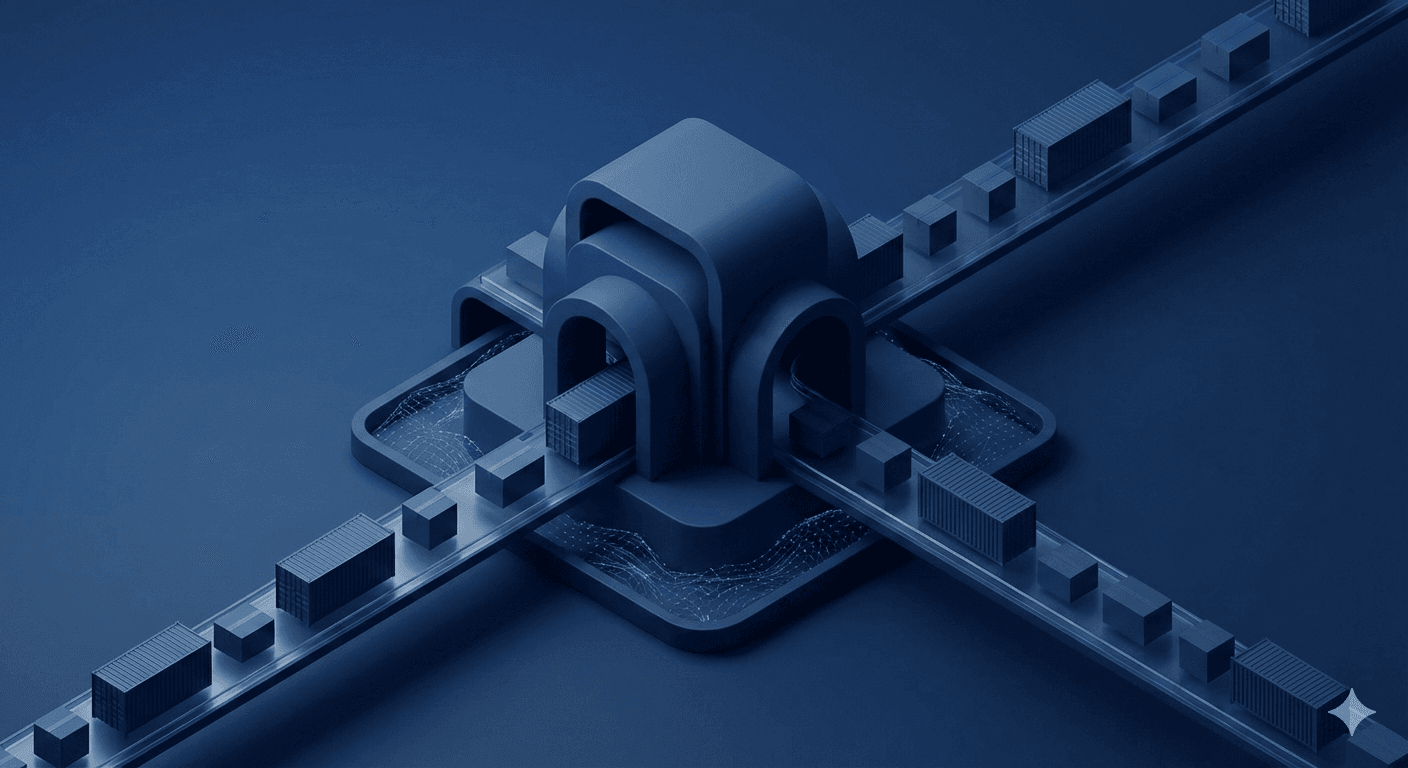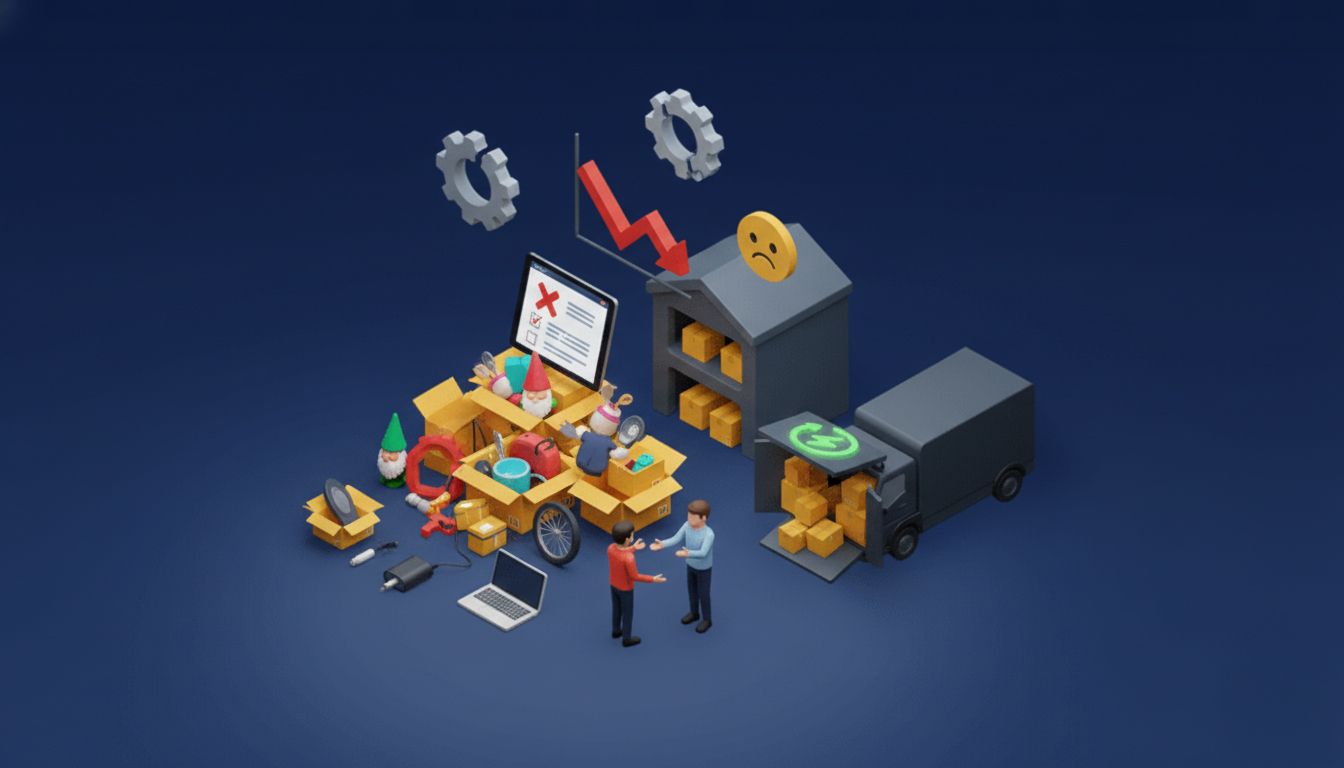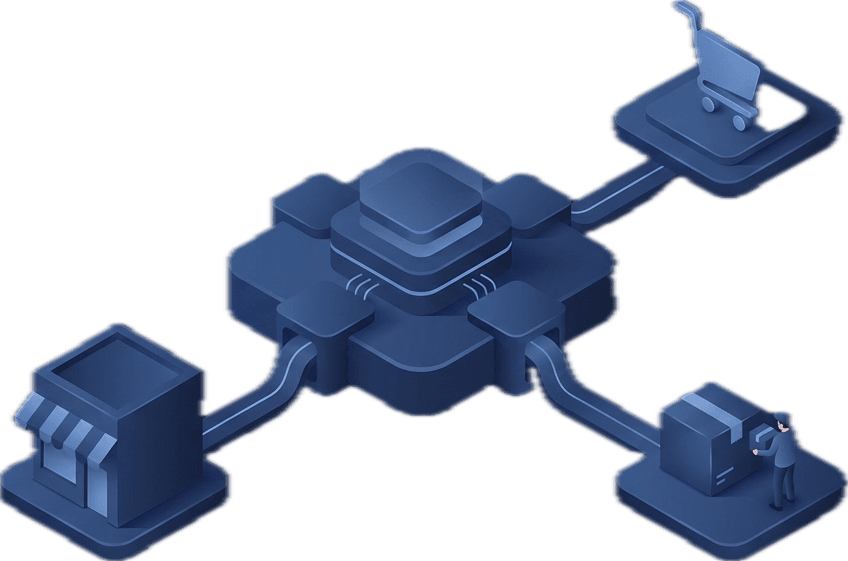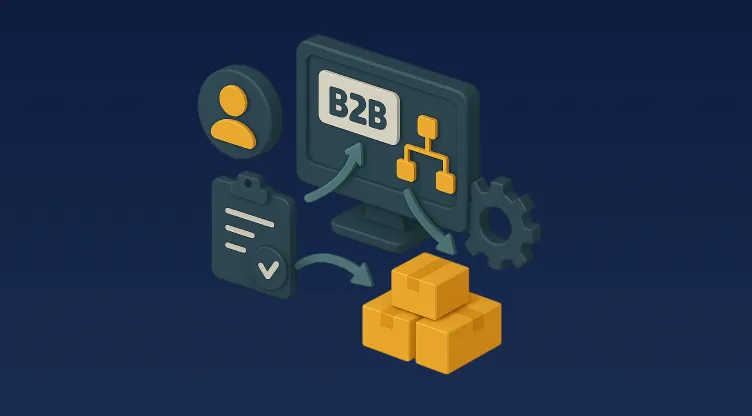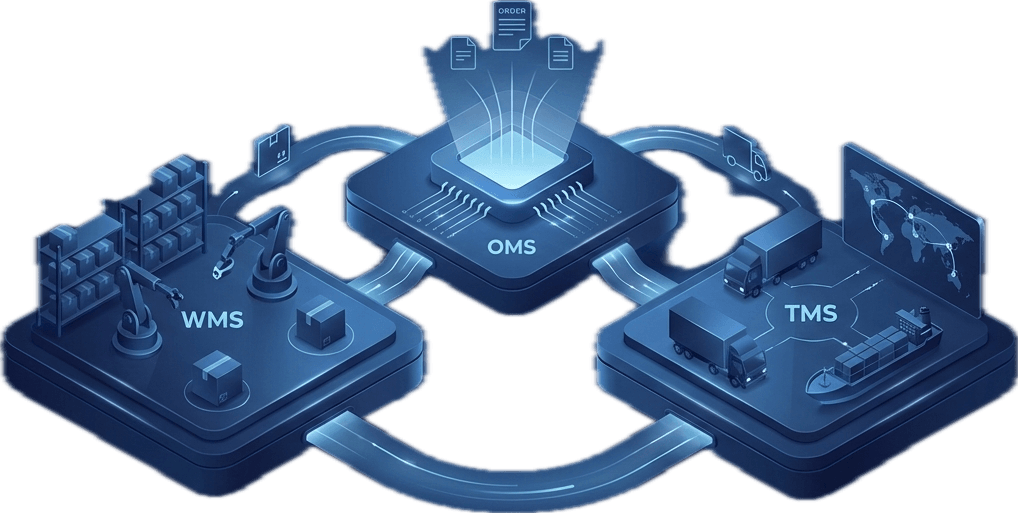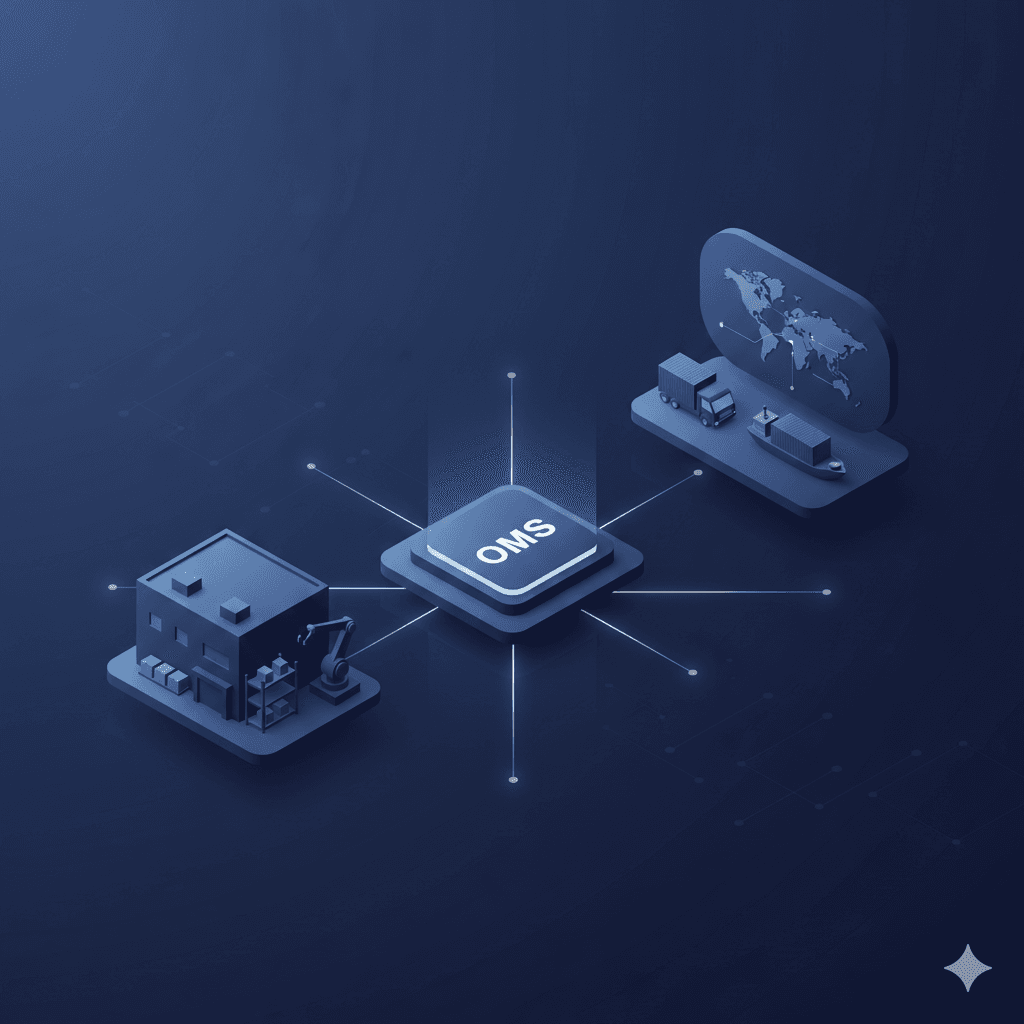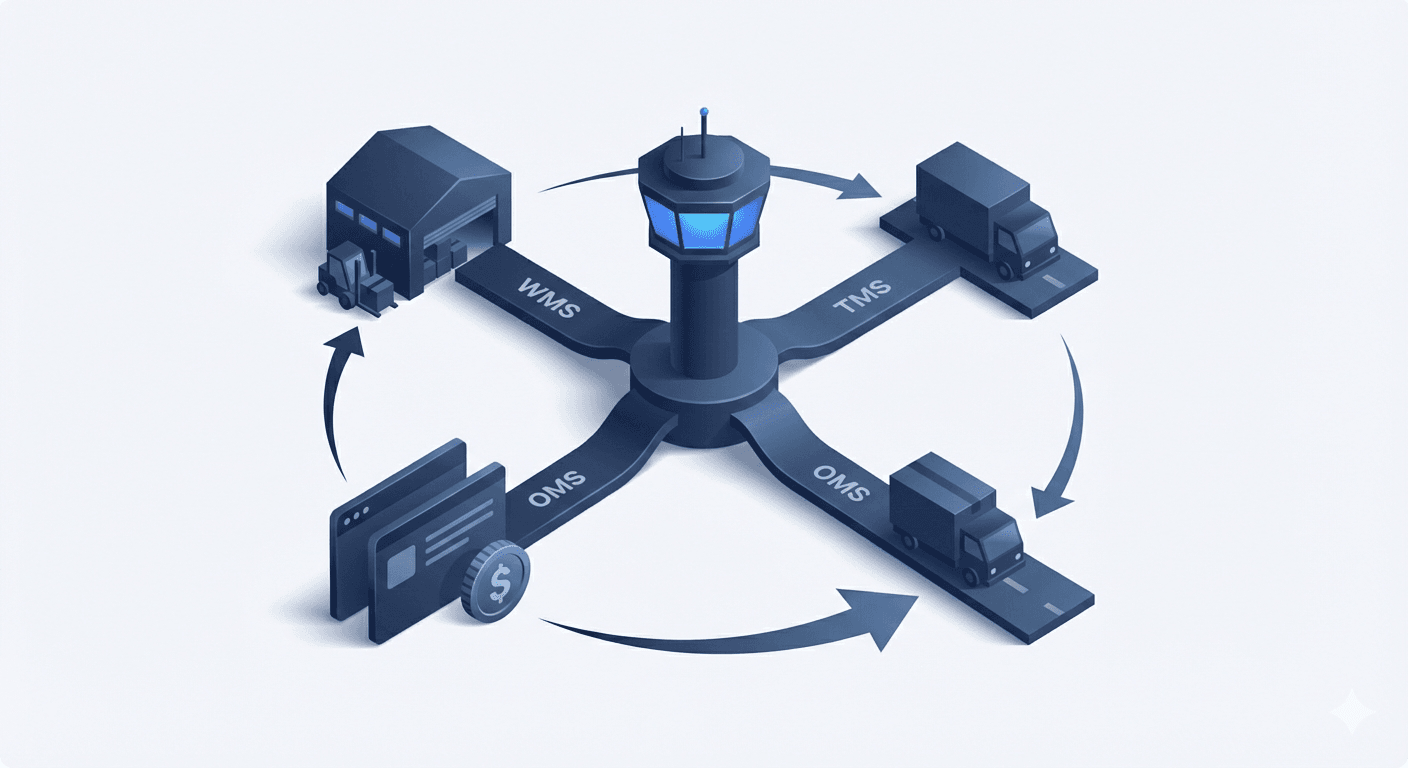Omnichannel Retail Tech Stack: Software Tools for Unified Online & Offline Operations

Table of Contents
Fast Track to Fulfilment
- Omnichannel retail demands synchronised online and offline operations
- Core tools: OMS, WMS, POS, TMS, and Returns Management
- Real-time inventory tracking prevents stockouts and overcommitments
- Unified tech stack ensures a consistent customer experience
- Integration-friendly platforms improve operational agility
- AI-driven logistics boost speed and efficiency in fulfilment
- A modular approach scales with retail business needs
- Retailers in MENA must consider hyperlocal logistics and regional compliance
- Omniful offers an all-in-one tech stack with plug-and-play integrations
Retail is No Longer a Channel—It’s an Ecosystem
Gone are the days when brick-and-mortar and online stores operated independently. Retail has evolved into an omnichannel experience where customers expect consistency, whether they shop online, collect in-store, or return items to a physical branch. For retailers, that means building a seamless tech stack that can bridge the digital-physical divide.
The MENA region, especially Saudi Arabia and the UAE, is witnessing a rapid transformation in retail. As initiatives like Saudi Vision 2030 push for digitisation and local eCommerce booms, retailers must invest in advanced infrastructure that supports scalability, flexibility, and customer-centric operations.
In this guide, we explore the core systems every omnichannel retailer needs to stay ahead of the competition.
Why a Unified Tech Stack Matters in Omnichannel Retail
Retailers juggling multiple sales channels without unified systems often face:
- Inventory inaccuracies due to poor synchronisation
- Delayed fulfilment because of inefficient order processing
- Customer dissatisfaction from inconsistent service across touchpoints
- High operational costs due to duplicated systems and manual work
A connected retail tech stack eliminates these challenges by offering:
- Real-time visibility across inventory and orders
- Streamlined logistics from warehouse to last-mile
- Centralised management of customer touchpoints
- Automation for scale, efficiency, and accuracy
Let’s break down the must-have software components of a modern omnichannel tech stack.
Order Management System (OMS): The Nerve Centre of Retail Operations
An Order Management System is the brain of your retail operations. It connects all sales channels, tracks customer orders, and routes them efficiently to fulfilment hubs or stores.
Key Capabilities:
- Real-time order tracking from placement to delivery
- Dynamic order routing for faster fulfilment
- Integration with marketplaces, web stores, and POS
- Partial and back-order fulfilment for flexibility
- Geolocation and zone-based fulfilment to improve delivery accuracy
- Automation workflows to reduce manual interventions
Warehouse Management System (WMS): Smart Inventory in Real-Time
A Warehouse Management System ensures goods flow smoothly from inbound to outbound with minimal errors.
What to look for:
- Multi-location and multi-brand inventory tracking
- Bin and batch management for SKUs
- Real-time syncing with eCommerce and marketplaces
- AI-powered picking route optimisation
- Barcode scanning, packing lists, and manifest creation
- Mobile support for iOS and Android warehouse operations
Transportation Management System (TMS): Deliver Fast, Deliver Right
Whether it's same-day within Riyadh or cross-country in Egypt, a reliable Transportation Management System ensures packages arrive on time, every time.
Features to prioritise:
- End-to-end support for first-mile, mid-mile, and last-mile delivery
- Fleet tracking and delivery driver performance management
- Route and load optimisation
- Real-time updates for customers and managers
- Geofencing for accurate delivery windows
- Automatic assignment of orders to drivers
Point of Sale (POS): Bridging Online and In-Store Experiences
A POS system that integrates with your OMS and WMS can transform physical stores into fulfilment and return centres.
Omnichannel POS essentials:
- Sync inventory across online and offline channels
- Support for multiple payment methods and ZATCA-compliant invoicing
- Order lookup and modification for returns or exchanges
- Loyalty programmes and digital wallets
- Android and web-based versions for flexibility
Returns Management: Turning Refunds into Retention
A good Returns Management System doesn’t just handle reverse logistics—it helps retain customers.
Features that reduce friction:
- Automated approval of returns (RMAs)
- Support for online and in-store returns (BORIS)
- Real-time refund processing and credit memo issuance
- Return grading and inspection workflows
- API integration with eCommerce platforms
Inventory Management: Visibility, Always
Inventory Management is the foundation of all omnichannel success.
Omnichannel-ready features:
- Real-time stock visibility by location, channel, and SKU
- Multi-hub stock transfers and audits
- GRNs, expiry tracking, safety stock, and serialization
- Dynamic barcoding and unit-of-measure support
- SKU freshness and batch-level control
Plug-and-Play Integrations: The Secret Ingredient
Plug and Play Integrations allow systems to talk to each other without heavy customisation.
Essential integrations:
- Marketplaces like Amazon, Noon, and Shopify
- Local logistics players like Aramex and Jahez
- Accounting and ERP systems
- Custom sales channel statuses and dashboards
Shipping Gateway: Cost-Efficient Fulfilment
A robust Shipping Gateway connects you to 100+ carriers with automated label printing, AWB generation, and tracking updates.
Look for:
- Smart carrier selection based on SLA, price, and success rate
- Print-ready shipping labels and AWBs
- Support for COD and temperature-sensitive shipping
- Eligibility and prioritisation rules
Omniful: All-in-One Platform for Omnichannel Commerce
Omniful brings all the above elements under one roof, tailored for MENA’s retail dynamics. Whether you’re a D2C fragrance brand in Riyadh or a logistics giant like Aramex, Omniful delivers:
- Real-time sync across channels
- AI-powered automation
- Modular, cloud-native apps
- Affordable, plug-and-play systems
- Designed for hyperlocal fulfilment and quick-commerce
Choosing the Right Tech Stack: MENA Edition
Consider these regional factors:
- Support for Arabic interfaces and RTL design
- Compatibility with local tax laws (e.g., ZATCA compliance)
- On-demand delivery support for urban centres like Dubai and Jeddah
- Hyperlocal capabilities to manage logistics from neighbourhood stores
Final Thoughts
In today’s competitive retail landscape, the winners are not those who sell the most—but those who fulfil the best. Omnichannel commerce is not a luxury anymore; it's a baseline expectation. And that requires a modern, unified, modular tech stack that works in harmony.
For MENA retailers, the opportunity is massive. By embracing solutions like Omniful that are built for the region’s complexities, you set yourself up for sustainable growth, improved margins, and unmatched customer loyalty.
Frequently Asked Questions
What is an omnichannel order management system?
An omnichannel OMS connects all your sales platforms and manages fulfilment, ensuring orders are processed consistently across physical and digital channels.
How does POS integration support omnichannel?
It synchronises data between online and in-store environments, allowing services like buy-online-return-in-store and real-time inventory updates.
Why should I choose a modular tech stack?
A modular stack allows you to scale your operations gradually, plug in tools as needed, and stay agile in a fast-changing market.
Can Omniful work with existing sales channels?
Yes, Omniful offers plug-and-play integrations with over 20 sales channels including Shopify, Salla, and WooCommerce.
Is Omniful suitable for hyperlocal or express delivery models?
Absolutely. Omniful supports dark stores, zone-based fulfilment, and advanced geofencing for express delivery.



